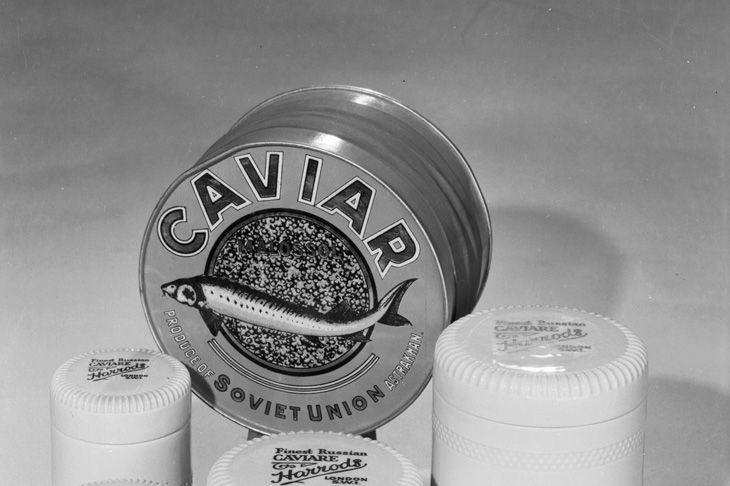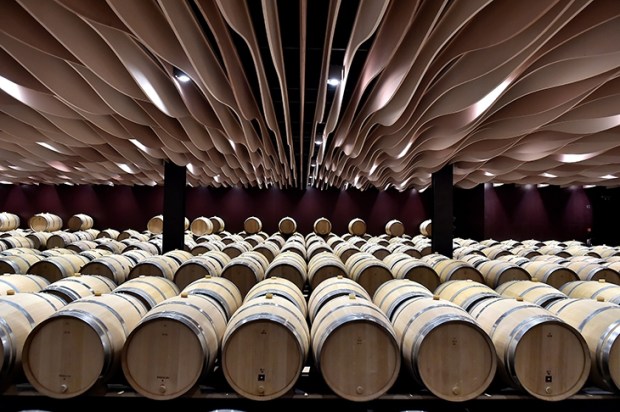I know an immensely grand aristocratic lady, impeccably mannered, with a regal grace and presence, who cannot be trusted near a tin of caviar. Apart from scoffing far more than her share, she will eventually make off with the tin itself, to lick it clean. Those of us from lesser social milieux should not only treat this as a lesson in etiquette. There are sound environmental arguments for her behaviour. Caviar is so precious, so rare, that it is an ecological crime to waste a single egg. When her ladyship is on the prowl, there is no danger of that.
Such thoughts came to me over the weekend, while musing on large themes over a small tin. It brought back memories and also made one think about the unforeseen consequences of political change. In the early 1990s, I sometimes travelled to eastern Europe with Julian Amery, a wonderful mentor. Largely because he was born in the wrong era, Julian was unlucky in his British political career. But in the crumbling Soviet empire, he was treated as a figure of the first importance. Everyone assumed that he had been foreign secretary, at least. In terms of entertainment, he always had two requests: gypsy music and caviar. I was keener on the caviar. But there was charm in hearing a useful fiddler accompanying an overflowing contralto, as Julian’s face became wistful, his memories drawn back to his piratical wartime youth in the Balkans, when the surroundings would have been less plush, the music, if any, more intense, and little chance of caviar.
Around the end of the Soviet era, the place for caviar was Moscow. You went to a restaurant and were immediately identified as a dollar customer. You were escorted past a school dining hall full of Russians on benches, supervised by surly waitresses, being fed meatballs and watery spuds along with watery vodka. The balls contained God knows what. Given that we foreigners were next door, one hoped that it was only depleted meat, and would not register on a geiger counter.
We hard-currency payers dined on chairs, at tables: about the same level of comfort as the best restaurant in Blackpool during a party conference. The waitresses were better-looking than their Blackpool equivalents, and they were happy to ingratiate themselves in the hope of tips (no Blackpool waitress could have come within six letters of spelling ‘ingratiate’). The prettier Muscovites might well be available for afters. As for the food, Blackpool could have done better — except for the caviar. That kept on coming, with decent vodka: why eat anything else, when it was so cheap?
You could also buy caviar in street markets: bring your own receptacle — receptacles were scarce — and fill it with dollops from a vat. One would have thought that there ought to have been outbreaks of food poisoning. I never heard of any. Equally, one would have assumed that there should be an international price for caviar. That was beyond Soviet organisational skills.
The Soviet Union is gone, and should be unlamented, even in Jeremy Corbyn’s office. But I cannot help a certain nostalgia for the era of abundant caviar. Equally, the common agricultural policy is deplorable, but think of Tante Marie’s chèvre and Oncle Bernard’s saucisson: the boudin noir, the worn-out nags waiting to be entered for the knackers’ stakes; all the other delights of a street market in Provence. Of all the trillions wasted in unnecessary government expenditure, subsidies to French artisanal farming are surely among the least deplorable.
Apropos France, we drank Grey Goose vodka with the caviar. That is a spirit to be sipped and savoured. Only an idiot would down it at a gulp. Indeed, it almost refutes George W. Bush’s claim that France is an entrepreneur-free zone. Caviar, good vodka: there is no more ambrosial combination. It even made us feel relaxed about Donald Trump.
Got something to add? Join the discussion and comment below.
Get 10 issues for just $10
Subscribe to The Spectator Australia today for the next 10 magazine issues, plus full online access, for just $10.
You might disagree with half of it, but you’ll enjoy reading all of it. Try your first month for free, then just $2 a week for the remainder of your first year.















Comments
Don't miss out
Join the conversation with other Spectator Australia readers. Subscribe to leave a comment.
SUBSCRIBEAlready a subscriber? Log in